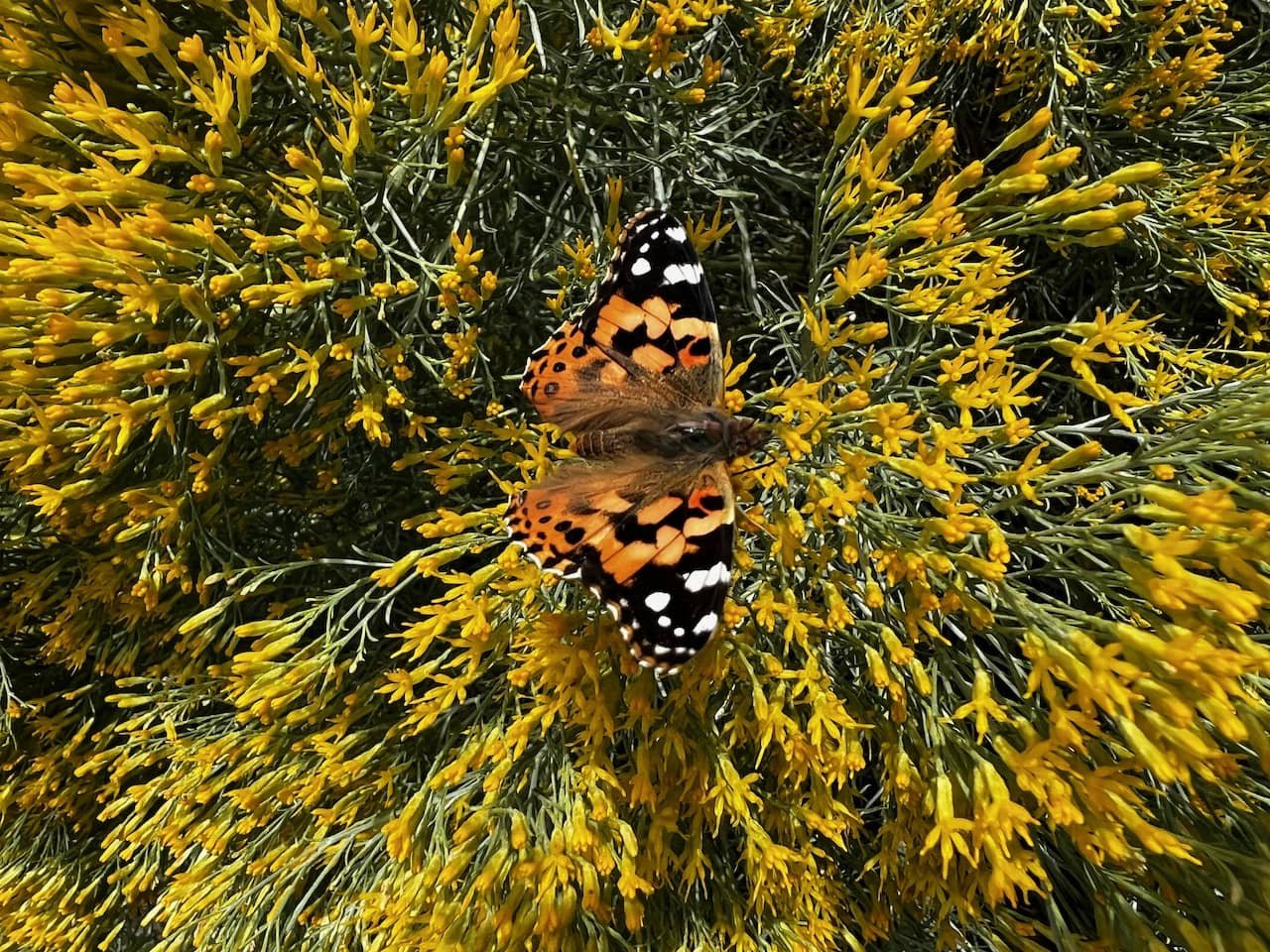Further Reading + Resources
on Pesticide Use in Boulder County

Here are two ongoing opportunities to get involved with pesticide-free weed mitigation and ecosystem restoration, organized by local community members.
Herbicides may be killing some invasive species that threaten the plants native pollinators need, but they are also definitely killing the pollinators themselves. We need to invest more in non-chemical invasive species management techniques that don’t kill the threatened populations that we’re trying to protect. Explore the 2023 Colorado Native Pollinating Insects Health Study and the role that pesticides play in their threatened status.
Let’s direct our County’s immense resources not just on the bare minimum goal of weed eradication, but on the visionary goal of regenerating our public lands and restoring their health from the soil on up! This chart was created by Longmont organic farmer, Mark Guttridge, of Ollin Farms.
Rejuvra™’s (Indaziflam) label states: “This product is classified as having a high potential for reaching surface water via runoff for several months or more after application.”
Staff have repeatedly said that despite their many years of applying Rejuvra™ on Open Space lands, there has been no testing done on non-target impacts such as those on aquatic life. This map shows potential stream contamination from Indaziflam applications using data reported from BCPOS on its 2021 applications.
Rejuvra™ (active ingredient: Indaziflam) is an herbicide that has been widely used on Boulder County Open Space already and which remains enshrined in the Boulder County Weed Managmeent Plan 2.0, approved by POSAC and now under consideration by County Commissioners. This well-researched paper argues that Rejuvra™ should not be sprayed on Front Range parks and open space land before demonstrating that the expected ecological benefits will outweigh the expected negative effects. This environmental impact study is necessary work that should proceed any large-scale spraying.
Dicamba is one of the herbicides Boulder County currently uses on Open Space for invasive weed control. This Xerces report discusses what’s known about the wider ecological impacts of dicamba and related herbicides to native plant communities and the wildlife they support, and provides a few short-term and long-term recommendations for reducing environmental harm from these volatile herbicides.
Boulder County Parks & Open Department is spraying 2,4-D, which the Natural Resources Defense Council calls “The Most Dangerous Pesticide You've Never Heard Of.” In 2015, the International Agency for Research on Cancer declared 2,4-D a possible human carcinogen, based on evidence that it damages human cells and, in a number of studies, caused cancer in laboratory animals. More conclusive is the proof that 2,4-D falls into a class of compounds called endocrine-disrupting chemicals, compounds that mimic or inhibit the body's hormones.
“I feel like the current IWMP as presented doesn’t clarify the decision-making process for selecting a treatment strategy and leaves an open-ended possibility for decades of aerial spraying of herbicides using drones and helicopters, without oversight. For this reason, I have been gathering information from various farmers, youth, scientists, concerned parents, etc to begin drafting an alternative Citizen’s Integrated Weed Management Plan. Together with my peers, we look forward to continue developing the plan in partnership with Boulder County as we hope to find some middle ground.”
Dicamba is one of the many herbicides Boulder County is using on our Open Space, despite tens of thousands of complaints, lawsuits, studies, and even EPA warnings to the contrary. “Dicamba is simply too volatile to spray over crops without risking off-target injury. Court records show Monsanto scientists struggled to prevent it from vaporizing and drifting in their tests, and the company didn’t make its herbicide available for independent testing before it went to market.”
Dr. Tim Seastedt is a professor emeritus of Ecology and Evolutionary Biology at CU Boulder, focused on terrestrial ecosystem ecology, grassland ecology, and plant-soil-animal interactions. He has specialized for 30+ years in studying invasive species. His full comments on Boulder County’s Draft Integrated Weed Management Plan are shared below in a downloadable pdf, excerpts of which appear below.
